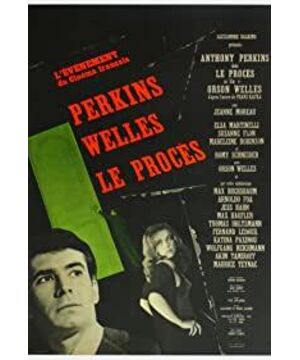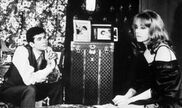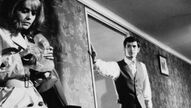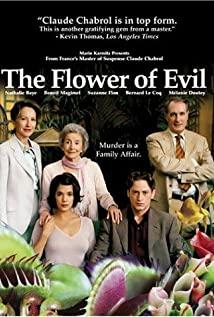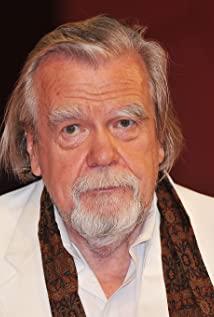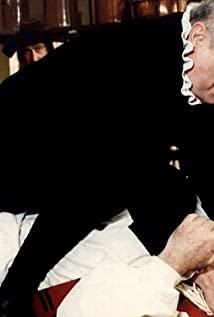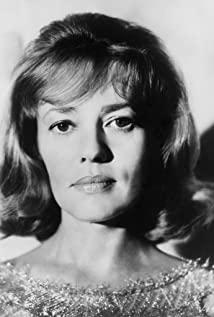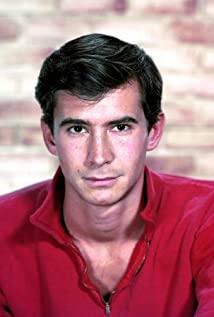The movie does a good job of interpreting the main theme of the novel. The slideshow at the beginning of the film is the theme of the whole film: a man tries to enter the gate of the law, but is blocked by the guard at the door. The man exhausted his tongue and even bribed the guard to be unable to enter. Until he was about to die in front of the law gate, the guard said that the law gate was actually only opened for this man, but now he is closing it. After the story was told, Orson Welles' narration appeared. He said, "Let's talk about a new case: "The Trial". This story is the logic of a dream, the logic of a nightmare." The picture fades out and in and out. ——The protagonist Joseph K was awakened while lying in a dream, and he was about to enter the next two hours of nightmares in the film. So if so, is the dream in K's sleep real, or is the nightmare about to be experienced later real? If the nightmare is real, so will the cruelty and darkness of the law. K is haunted by unexpected spies, claiming that he is imprisoned for a crime. And K's stammering and frightened behavior does look like a suspect (Wells probably wanted the audience to think that Joseph K. was a suspect in the first place without giving evidence). But the law is about evidence, and we cannot convict K of a crime based on his actions. Wells' film satirizes the injustice and dark side of the law, and makes the audience look at Joseph K on the opposite side from the start. This trick is very clever. The scene of Anthony Perkins sinking to the bottom of the lake in "Psycho" also makes the audience stand on the opposite side. Wells also used this wisely. However, K did not commit a crime, as he explained to Miss Bustner: he had a sense of tension in his bones. He lost something at the school desk. The teacher asked who stole it, and he didn't even know what was lost. He also looks nervous. Orson. Wells also used a lot of expressionist techniques in the film: such as the high gate outside the courtroom, symbolizing the supremacy and unattainability of power; all non-legal workers in the film are like prisoners: the barrister's house The patron was placed under house arrest in a room (he respected the barrister like a dog), the barrister spied on his performance from his lover and secretary; the expressionless crowd of people with signs around their necks in the square outside the courtroom were more like It is the prisoner of the Auschwitz concentration camp; the painter's room and line clothes stitched together with wooden boards also symbolize the cage and prisoners. Although K himself is also a prisoner under house arrest, he has been seeking a universal truth, that is, "the justice of the law". K in the last paragraph - escaped from a long closed space and then into a tall church, and the priest is also trying to make him confess. Here he sees the barrister again, and the conversation between the two goes back to the previous slide, where the barrister becomes the doorman in the story, and K is the man, and K thinks they have both failed. Before leaving, K told the priest, "I'm not your child!" (K has been abandoned by the law, and he has chosen to be abandoned by God, he belongs only to himself) After K escaped from the church, he was caught by spies, who placed him in In an open deep ditch, a shooting was to be carried out, but the spies were unable to do anything or were afraid of blood spattering themselves, so they dropped a bomb in the distance. At this point, Joseph K. seems to be in despair. He was finally defeated by the cruelty of the legal world. We can see that he picked up the bomb (it is conceivable that he still has a little hope of survival, and he threw the bomb back; also It is conceivable that he is holding a bomb and waiting for self-termination). The only principles that can survive in this legal world are: lies, obedience, hypocrisy, and slavery. K did not learn to adapt to this dirty legal society, so the door of the law was closed to him forever. (Of course, the door of the law has actually been opened for him) K seems to be in despair, he is finally defeated by the cruelty of the legal world, we can see that he picks up the bomb (it is conceivable that he still has a little hope of survival and throws the bomb back; it is also conceivable that he is holding the bomb wait for self-termination). The only principles that can survive in this legal world are: lies, obedience, hypocrisy, and slavery. K did not learn to adapt to this dirty legal society, so the door of the law was closed to him forever. (Of course, the door of the law has actually been opened for him) K seems to be in despair, he is finally defeated by the cruelty of the legal world, we can see that he picks up the bomb (it is conceivable that he still has a little hope of survival and throws the bomb back; it is also conceivable that he is holding the bomb wait for self-termination). The only principles that can survive in this legal world are: lies, obedience, hypocrisy, and slavery. K did not learn to adapt to this dirty legal society, so the door of the law was closed to him forever. (Of course, the door of the law has actually been opened for him)
View more about The Trial reviews


